News
News list
-
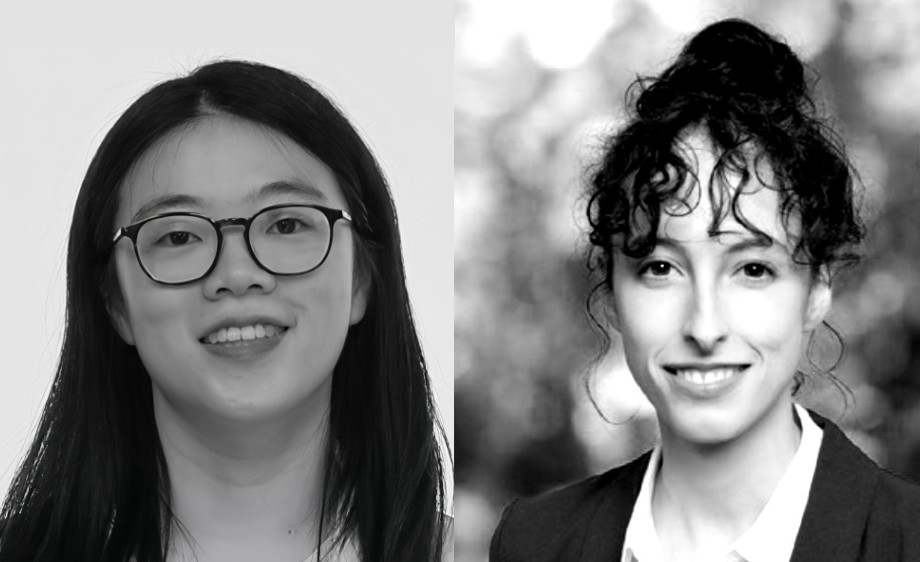
Yilin & Selina join GeoComputation as new PhD students for SNF Project Digiland
From a newly launched SNF Project Digiland, GeoComputation Unit welcomes two new PhD students – Yilin Lin and Selina Gattiker. The project is about exploring texts and narratives to reveal different dimensions of landscape considering space, time, language, and stakeholders. Upon Inhye Kong’s supervision, Yilin’s work will focus on global protected areas, and Selina will investigate peri-urban landscapes of Europe with Ross Purves as a main supervisor.
-
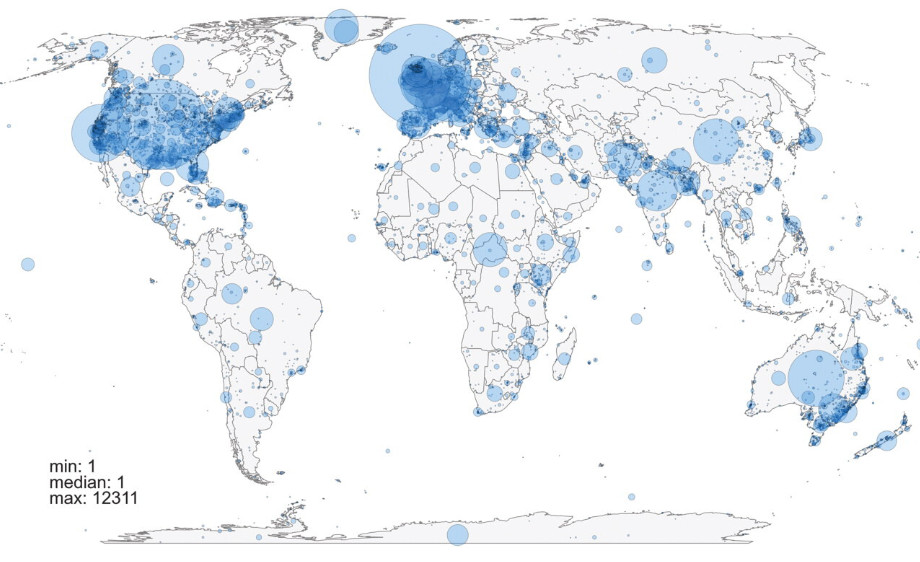
Is news media a fair representation of global attention for climate disasters?
Inhye Kong and Ross Purves from GeoComputation Unit examined the geographic bias of British newspapers reporting on global climate disasters. Surprisingly (and not so surprisingly), the scale of media attention tends to follow economic wealth than actual disaster events. Besides, fine-grained place names were almost exclusively found in Europe. These findings together throw a question, where are we missing in these media narratives, considering the power of news media to catalyze global awareness and policy actions?
-
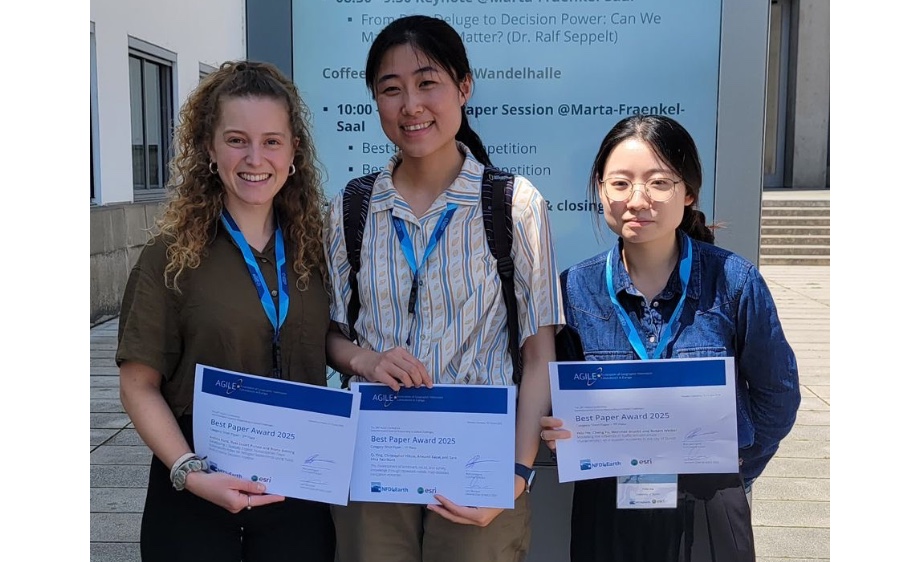
Geocomputation@AGILE 2025
The GIScience Centre made a very strong showing at this year’s AGILE. Master’s student Annika Kunz was second placed in the best short paper competition for her paper Developing a Spatially Explicit Humanitarian Flood Vulnerability Index for Refugee Settlements using Fuzzy Multi-Criteria Decision Analysis (https://doi.org/10.5194/agile-giss-6-33-2025). Congratulations too to Qi Ying, Simon Hirschhofer and Yelu He who all also won prizes at this year’s conference.
-
.jpg)
GIUZ@Forschungssymposium SNP+
Am 12. und 13. Juni 2025 findet das zweite «Forschungssymposium des Schweizerischen Nationalparks, des UNESCO Biosphärenreservats Engiadina Val Müstair und des Regionalen Naturparks Biosfera Val Müstair (SNP+)» in Zernez, Schweiz, statt.
-
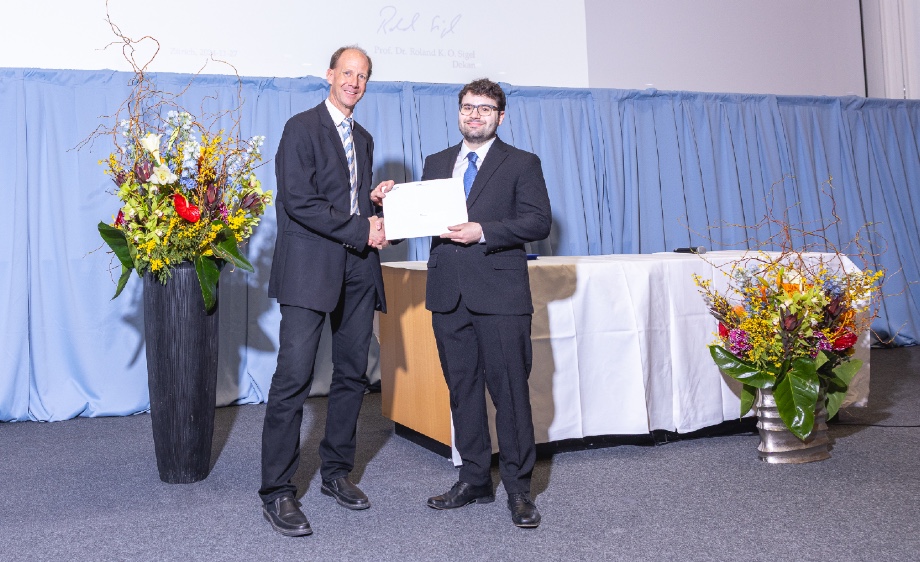
Diego Gomes' MSc thesis received a distinction from the MNF
Diego Gomes recently completed his Master thesis entitled "Geoparser: A Transformer-Based Bi-Encoder Approach for Efficient Toponym Disambiguation". In his thesis, he developed algorithms which identify and assign coordinates to placenames found in text. So, given an input like "The cyclists started their ride from Bellevue, and finished at Helvetiaplatz" the tool should find two placenames (Bellevue and Helvetiaplatz) and give them coordinates, such that they can be placed on a map.
-

Public opinion on energy sources: the power of reliability
The energy transition is not just a technological challenge – it’s a societal one. Public acceptance is crucial for the success of renewable energy projects. A master’s thesis analysed 2.6 million German-language tweets from 2008 to 2023 to categorise public sentiment towards nuclear, coal, solar, wind, water and gas/oil energy.
-

Public Data Lab
The Statistical Office of the Canton of Zurich, Opendata.ch, the University of Zurich (UZH) and the Zurich University of the Arts (ZHdK) are joining forces: In the Public Data Lab, the four partners are developing and reflecting on indicators that can be used to record and measure social change.
-

DSI GIS Hub
The project was completed at the end of 2024. The GIS Hub will persist in a reduced form and be integrated into the research group.
-

AgroPionier: Vielfalt auf den Feldern, innovative Lösungen und Zusammenarbeit
Zunehmende Wetterextreme wie Trockenperioden und Starkregen zeigen, wie wichtig es ist, dass sich die Landwirtschaft an das veränderte Klima anpasst, um die Lebensmittelversorgung zu sichern. Mehr Vielfalt auf den Feldern, innovative Lösungen und Zusammenarbeit sind entscheidend.
-

Visit of Tatu Leppämäki from the University Helsinki
Tatu, a PhD student from the Digital Geography Lab in University of Helsinki, has been visiting the geocomputation group since September and has now shared some of his experiences in Switzerland in a blog post.
-
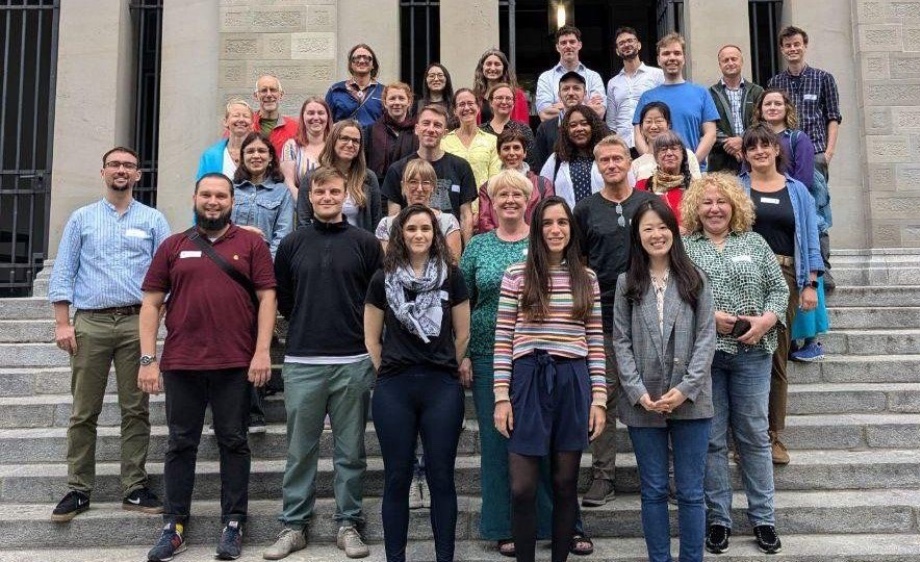
Conference ILANSCO
From September 9th to 11th, the University of Zurich hosted the ILANSCO Conference - Interdisciplinary Perspectives on Landscapes in Language, Society and Cognition 2024.
-

RGS-IBG conference 2024, London - honourable mention
The 2024 RGS-IBG Annual International Conference was held in London, from Tuesday 27 to Friday 30 August 2024. Daniela Marino Castro, PhD candidate, received an honourable mention to her for presentation ‘Revealing Cross-Regional Patterns: The Role of Landscape in Shaping Positive Perceptions’.
-
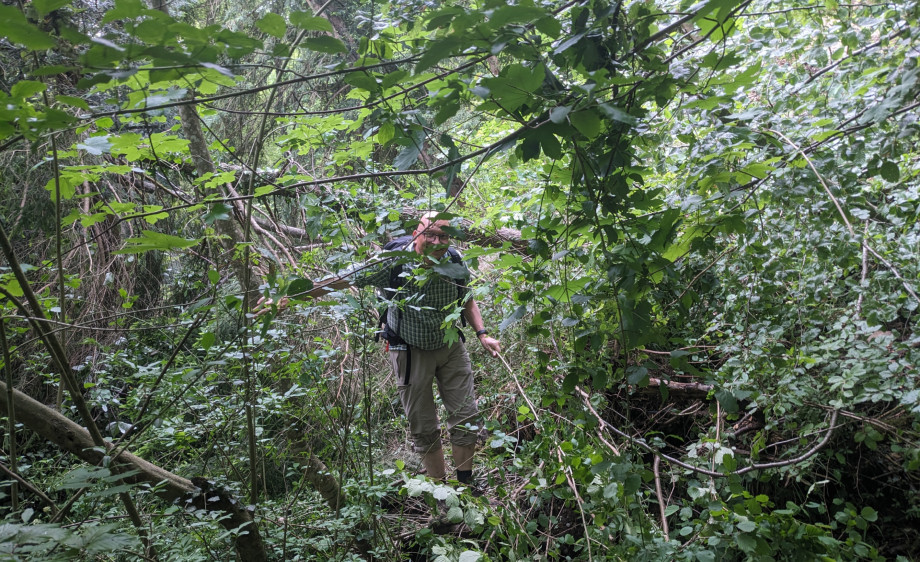
An inspiring visit by Dr. Martin Drenthen from Radboud University
The Geocomputation group was recently privileged to host environmental philosopher Dr. Martin Drenthen from Radboud University in the Netherlands. His one-week-visit resulted in a rich and thought-provoking exploration of ethical questions about nature management and rewilding, and specifically the return of large mammals to the Netherlands.
-
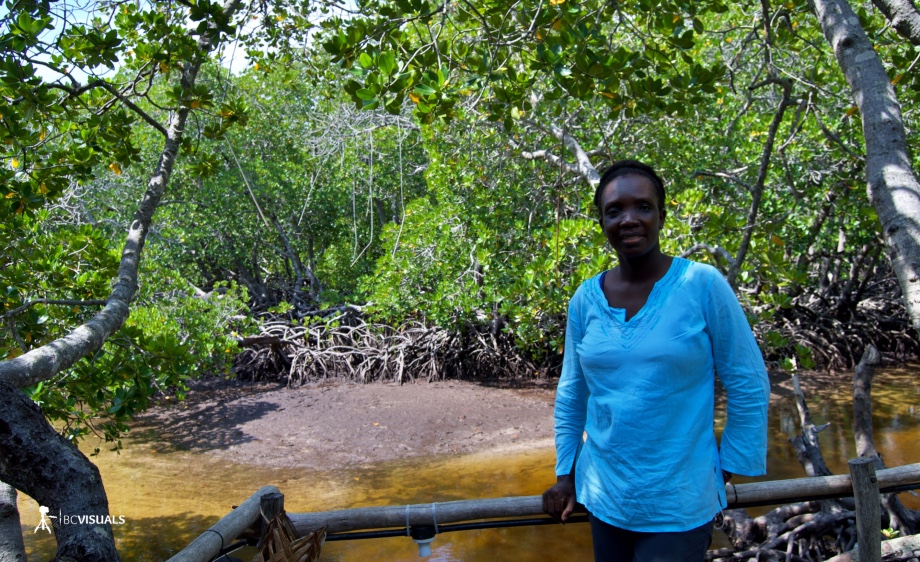
Visit of Prof. Dr. Margaret Awuor Owuor from the Wyss Academy for Nature
On Wednesday 13th March we hosted Prof Dr. Margaret Awuor Owuor from the Wyss Academy for Nature with affiliation to the Institute of Ecology and Evolution, University of Bern.
-
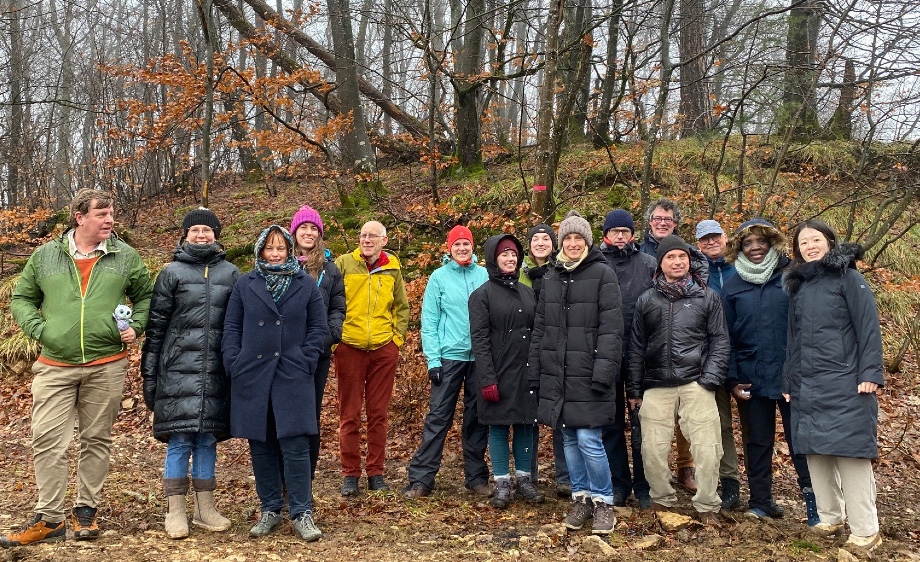
Let’s talk about (changing) landscape values.
From the 17th to 19th of January a small group of scholars with complementary expertise including among others geographers, landscape ecologists and environmental historians came together at Herzberg in the Jura mountains. In the workshop, participants looked at interdisciplinary approaches to (changing) landscape value with a focus on perception and diversity.
-
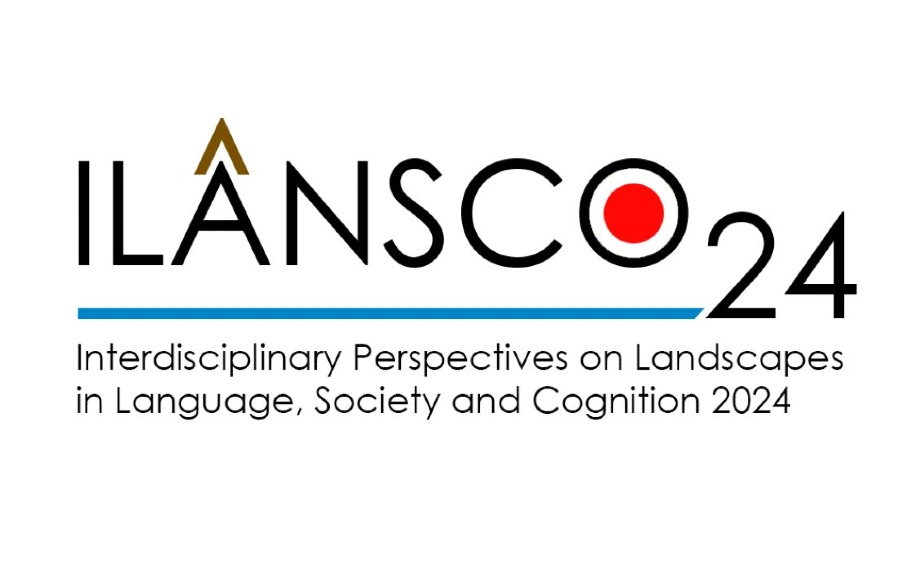
Call for papers: ILANSCO 2024
The Geocomputation unit supports the organization of the conference ILANSCO 2024.
-
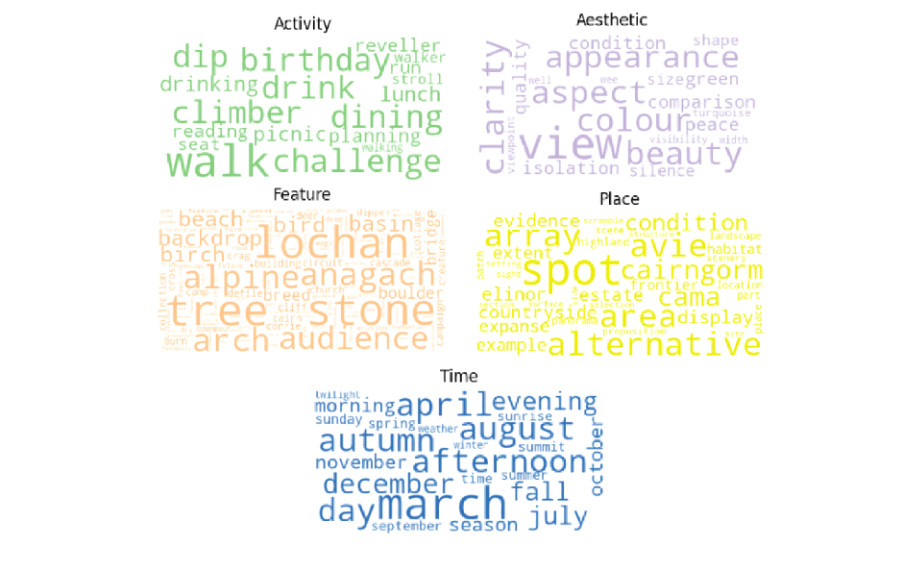
Extracting positive descriptions and exploring landscape value using text analysis in the Cairngorms National Park
What is the impact of natural landscapes on our wellbeing? To understand this, we study how positive emotions denote values of a place.
-
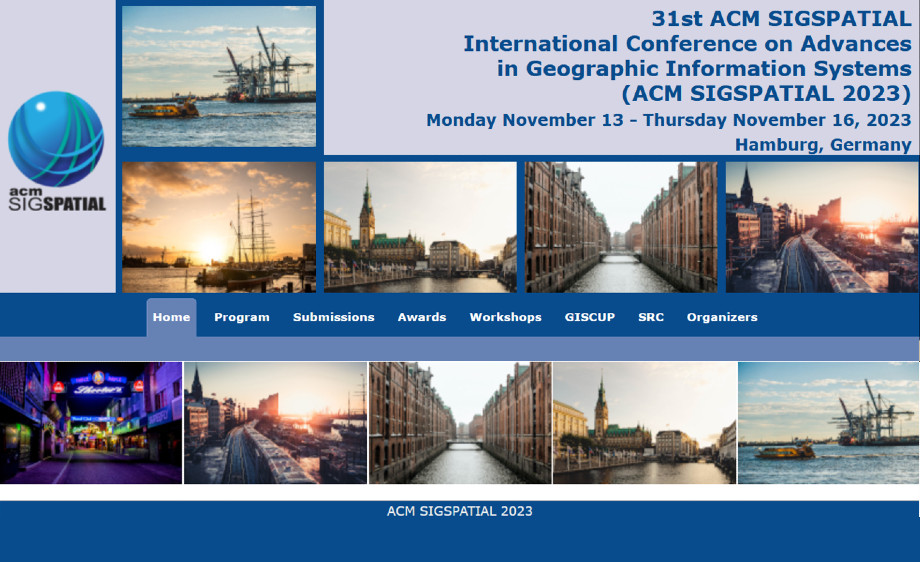
Participation in the 7th ACM SIGSPATIAL International Workshop on Geospatial Humanities, Hamburg
The conference covers original research contributions in conceptual, design, and implementations with geospatial data.
-
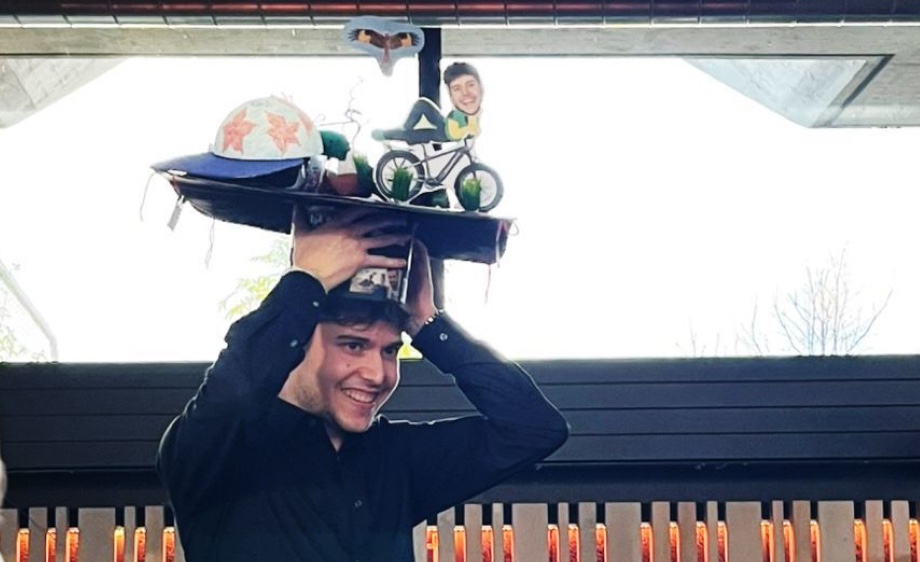
PhD Defense Maximilian Hartmann
On 10th November, 2023, Maximilian Hartmann had his PhD Defense, entitled: "Building Spatially Explicit Policy Indicators Based on User-Generated Content: Resources, Methods and Implementations".
-
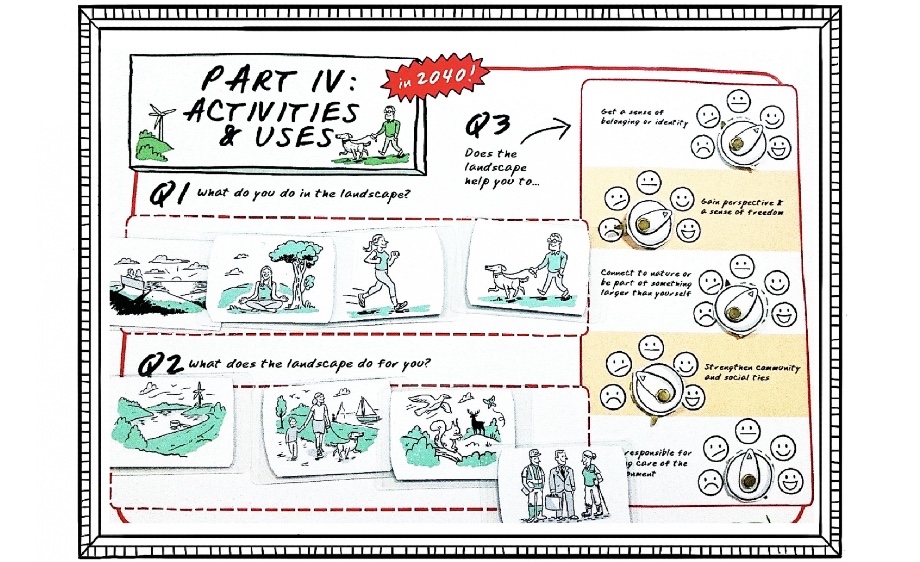
Using illustration-based interview methods to understand land management and conservation visions
We use engaging and inclusive illustration-based interview methods to understand land management and conservation visions.
-
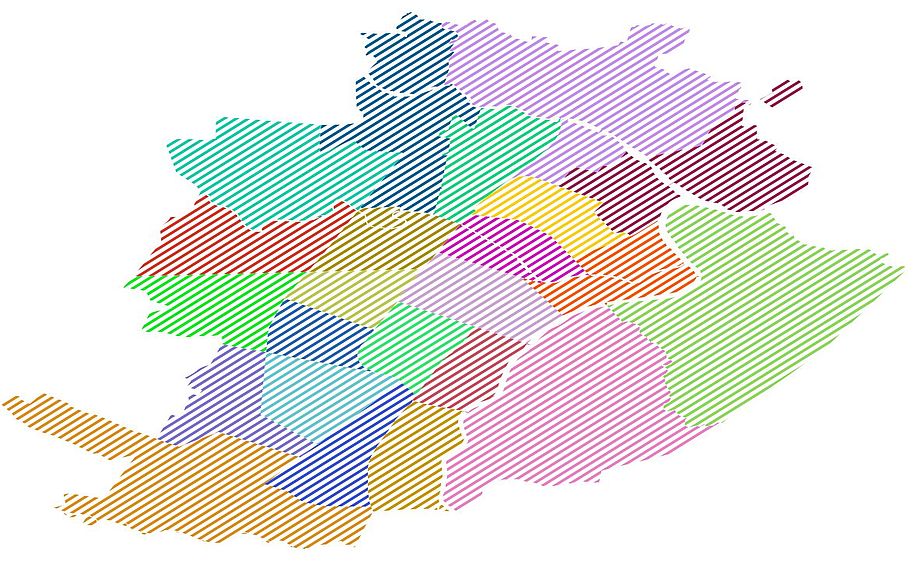
Participation in the conference “On the sense of a name”, Torino (Italy)
Urban toponymy unveils how people experience and interpret the urban landscape. Sara Racca from the Geocomputation group has been invited to the conference On the sense of a name:
-
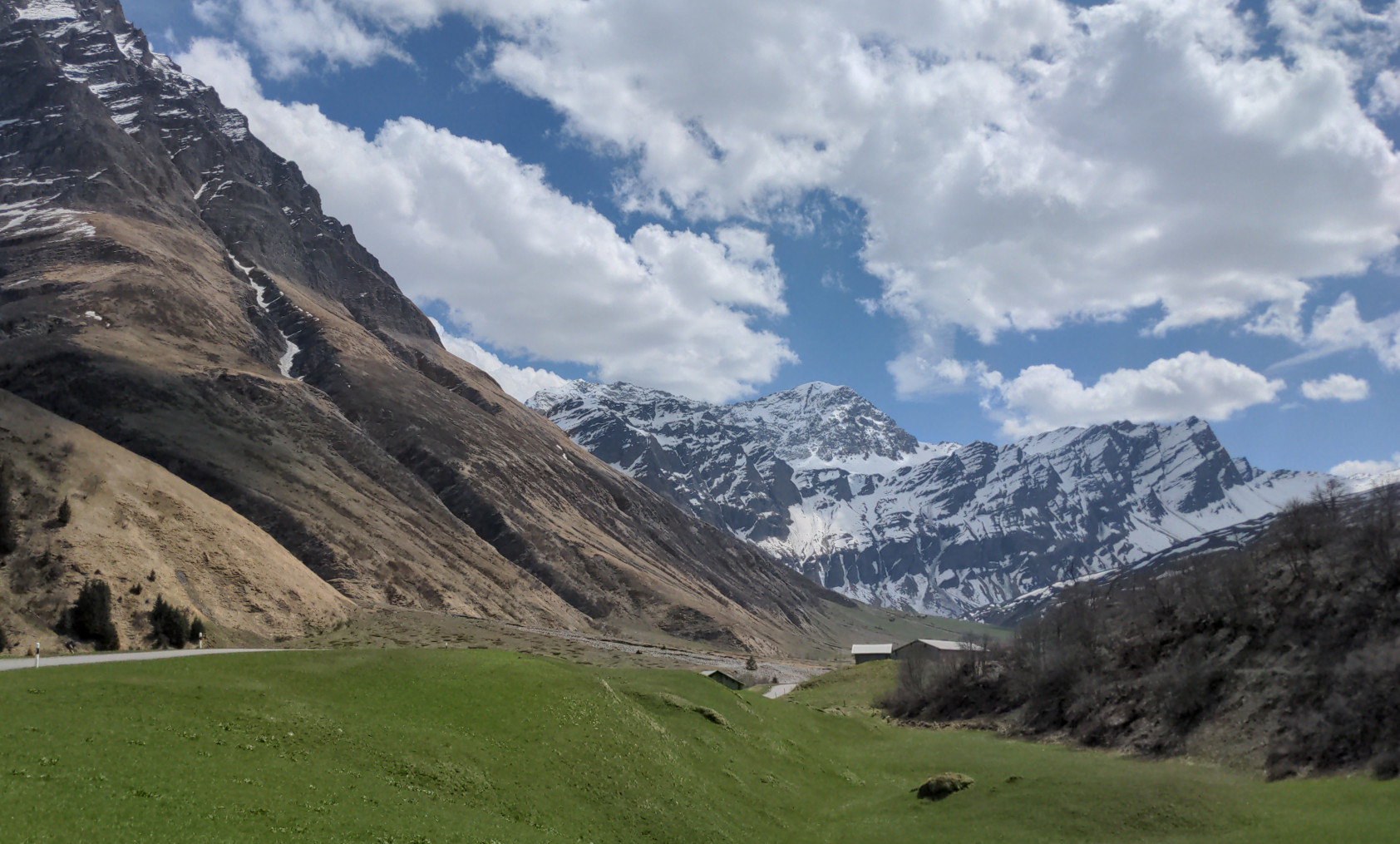
Profiling Swiss parks with user generated content
Are you searching for the right holiday destination in Switzerland? Are you a park manager that wants to know more about how the park is used? In our recent publication you might find the answer!
-
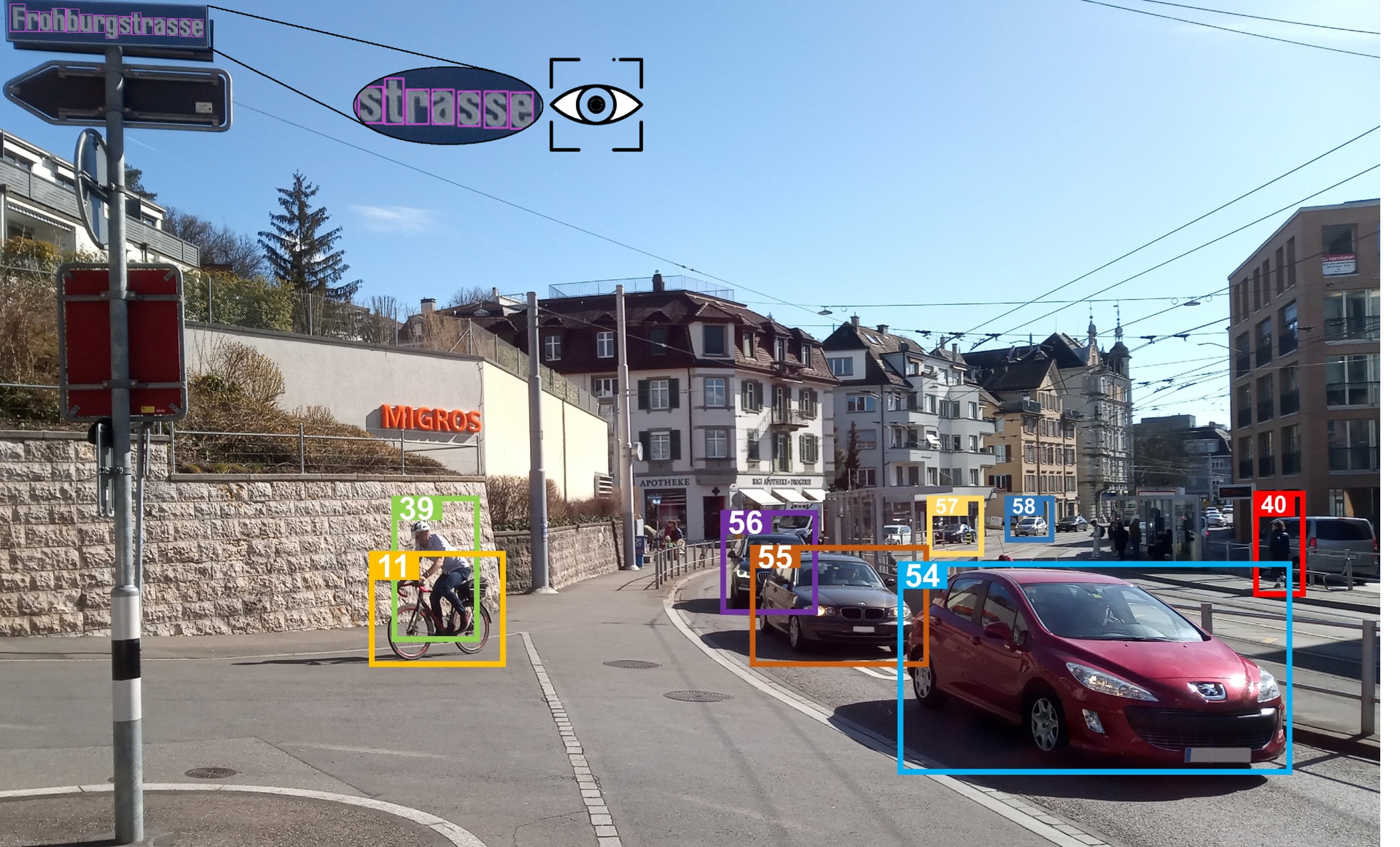
Seeing through a new lens: exploring the potential of city walking tour videos for urban analytics
How sustainable is urban transport in a given city and how can we quantify it? Zurich has pledged to be net zero by 2040.
-
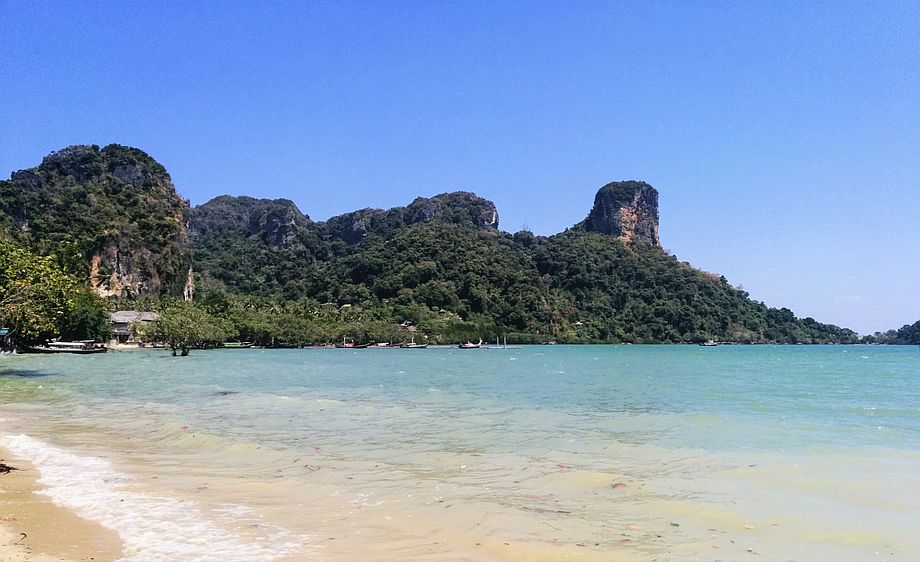
Inhye Kong to be awarded UZH Postdoc grant (formerly Forschungskredit)
Geocomp postdoc Inhye Kong received a UZH Postdoc grant with her proposal “Coupling Science and Narratives”. Beginning in October, she will investigate media text corpora to better understand how landscape values are changing as a result of climate change.
-
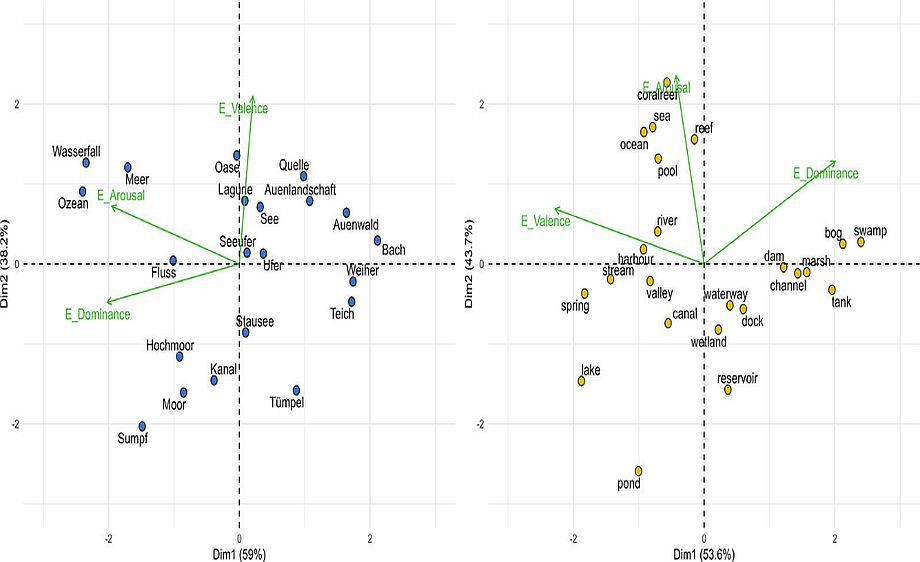
Do different linguistic natives share similar conceptualization of landscape?
From a collaborative work with Professor Asifa Majid at Oxford, our new paper compared language-driven conceptualisation of landscapes.
-
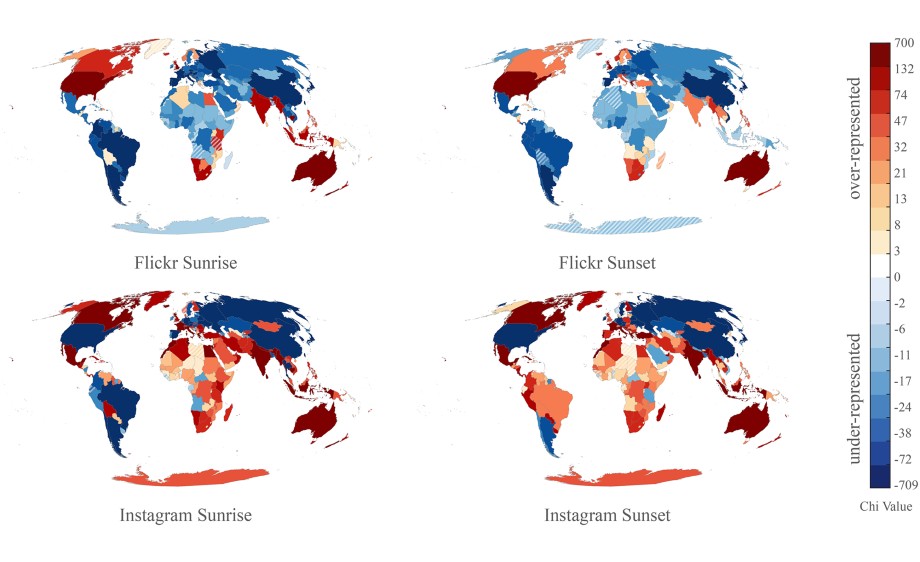
Global landscape preference study published in Plos One
A new study explores landscape preference globally. Led by Alex Dunkel of TU Dresden, this paper explores who, how and where sunset and sunrise is captured by two popular social media platforms, Flickr and Instagram.
-
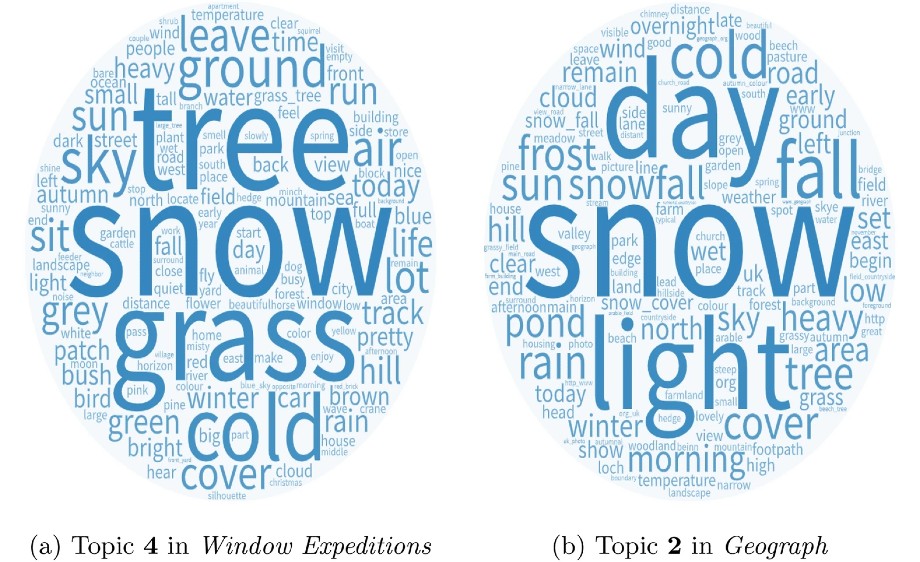
Identifying landscape relevant natural language
Finding natural language which describes landscape can be like looking for a needle in a haystack. Manuel Baer used contributions to Window Expeditions and sentence transformers to find similar descriptions.
-
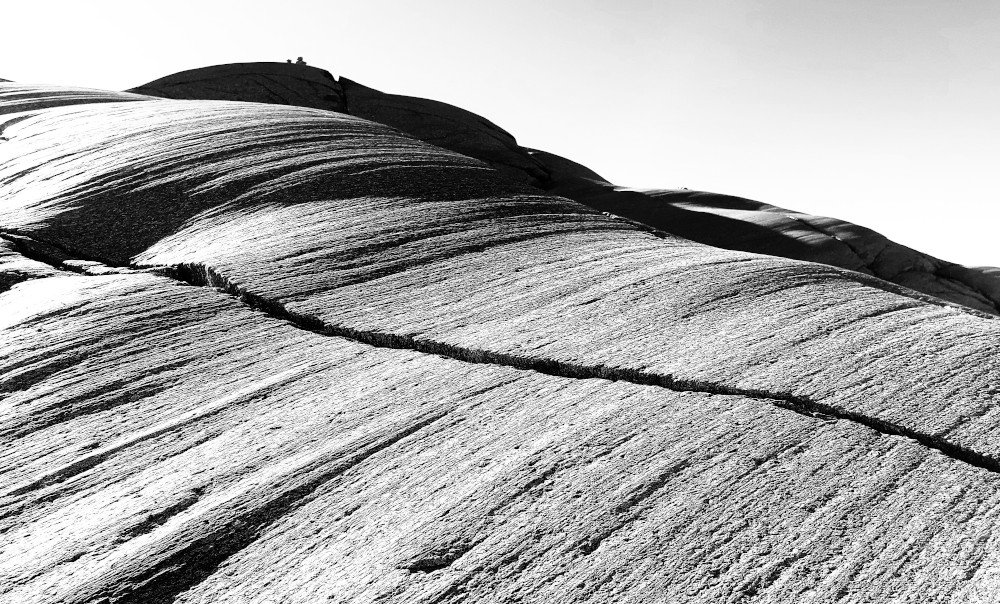
Unlocking Environmental Narratives
Newspapers, travel diaries, policy documents and even fiction offer rich material capturing relationships between people and surroundings.
-
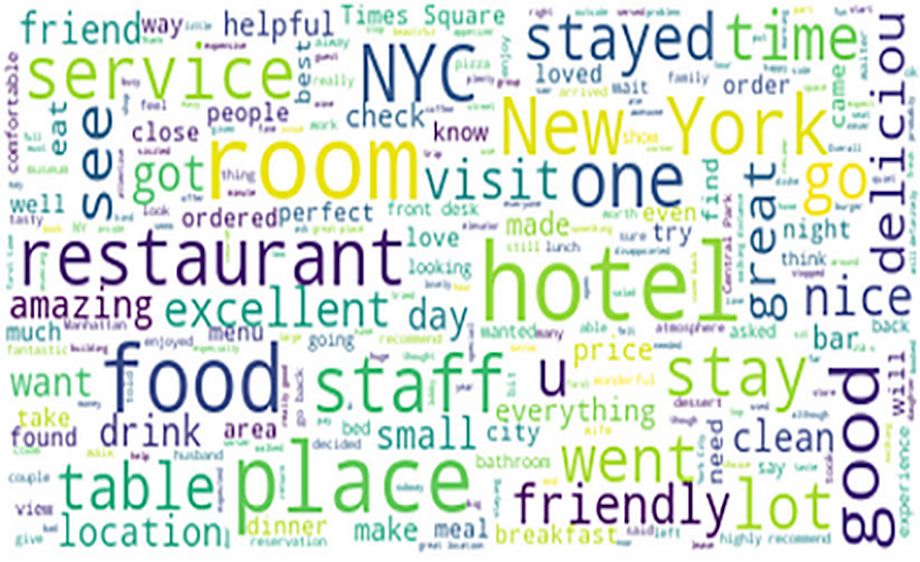
How place functionality can be derived from individual’s descriptions
Places are usually ambiguous and context dependent. Place functionality as a context in place descriptions is one of the prominent and distinguishing features of place.
-
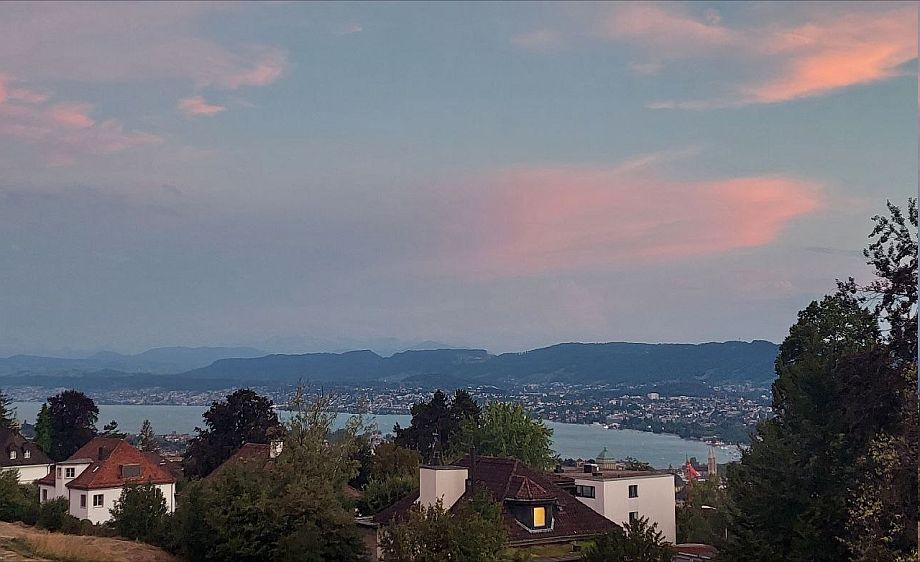
New group member
Mina is a visiting researcher at the University of Zurich. She is pursuing her Ph.D. degree in geospatial information systems (GIS) at K. N. Toosi University of Technology (KNTU).